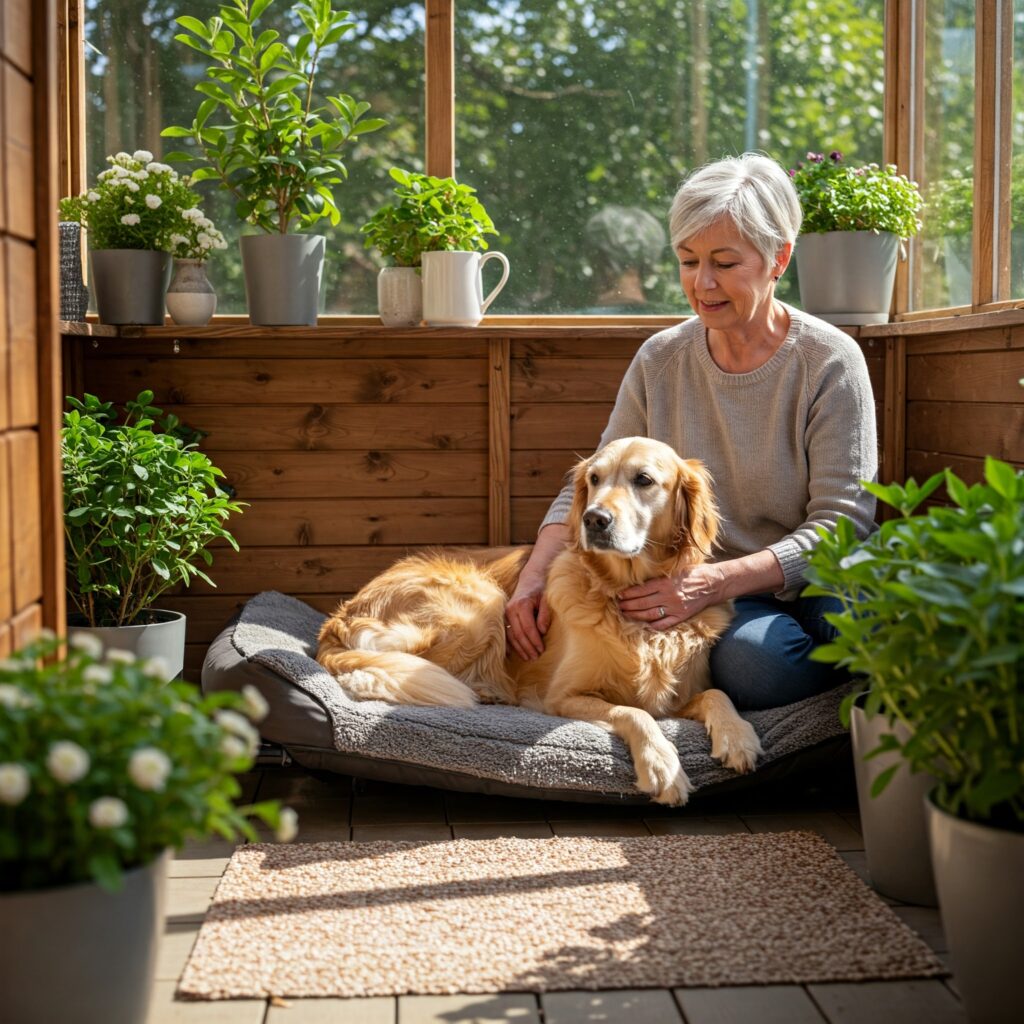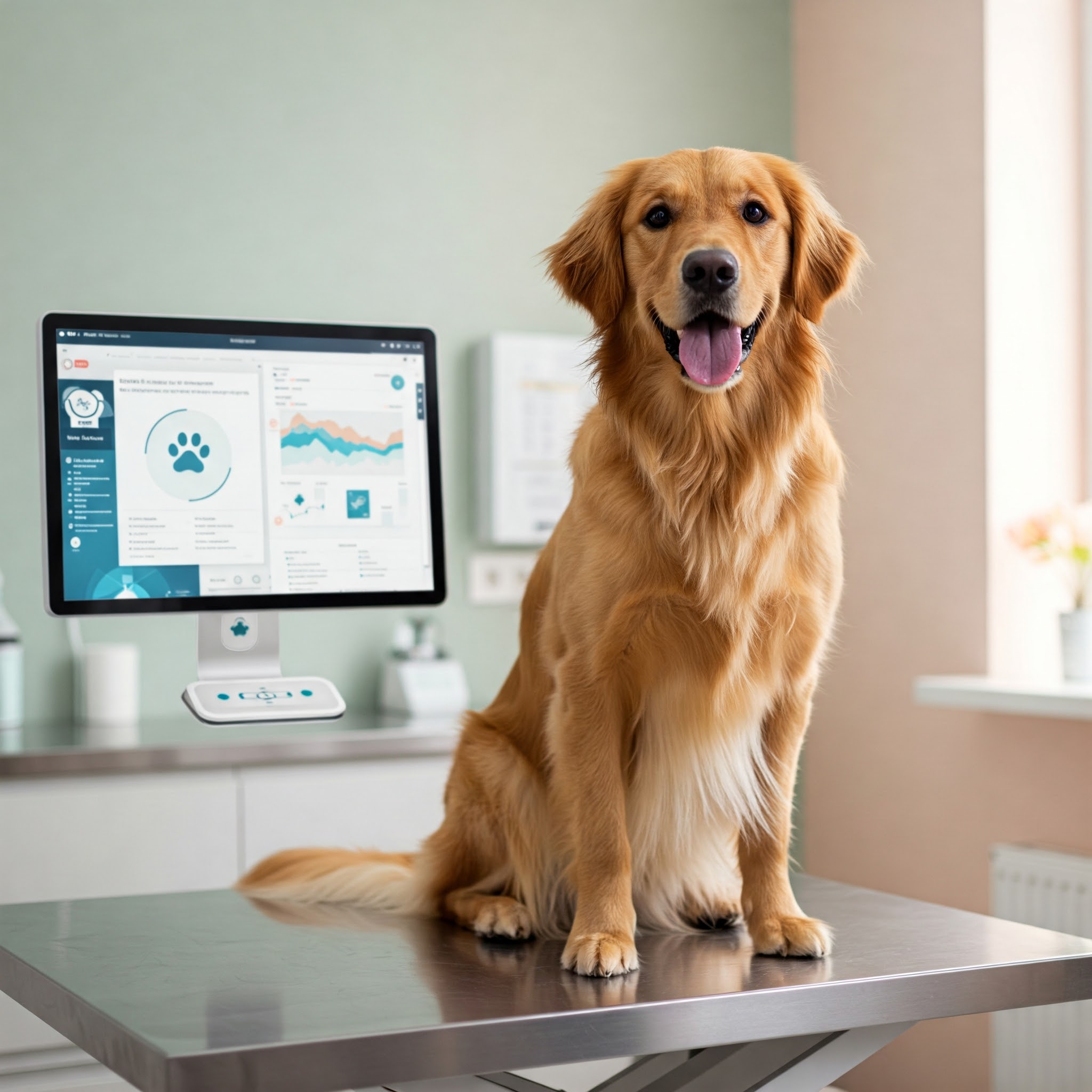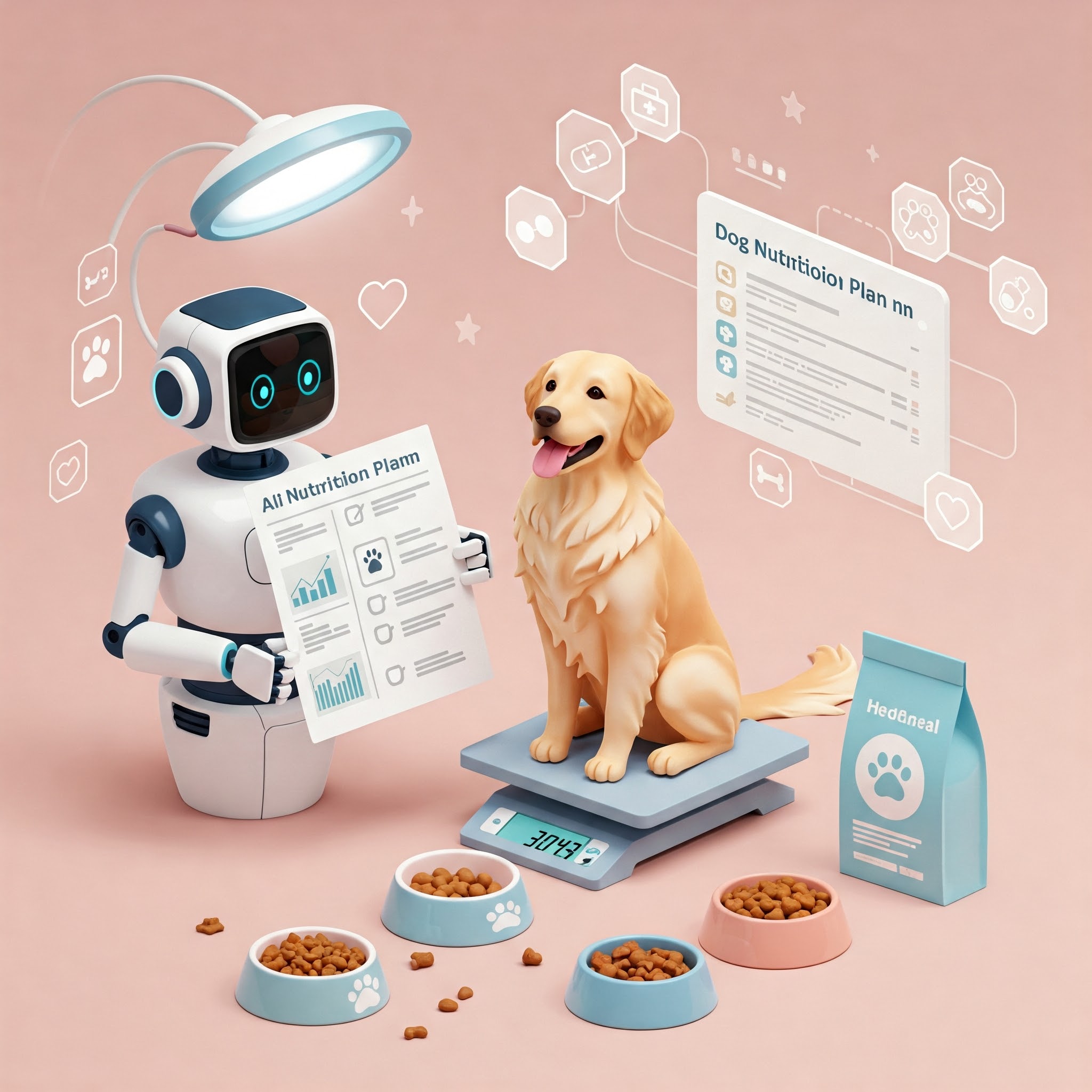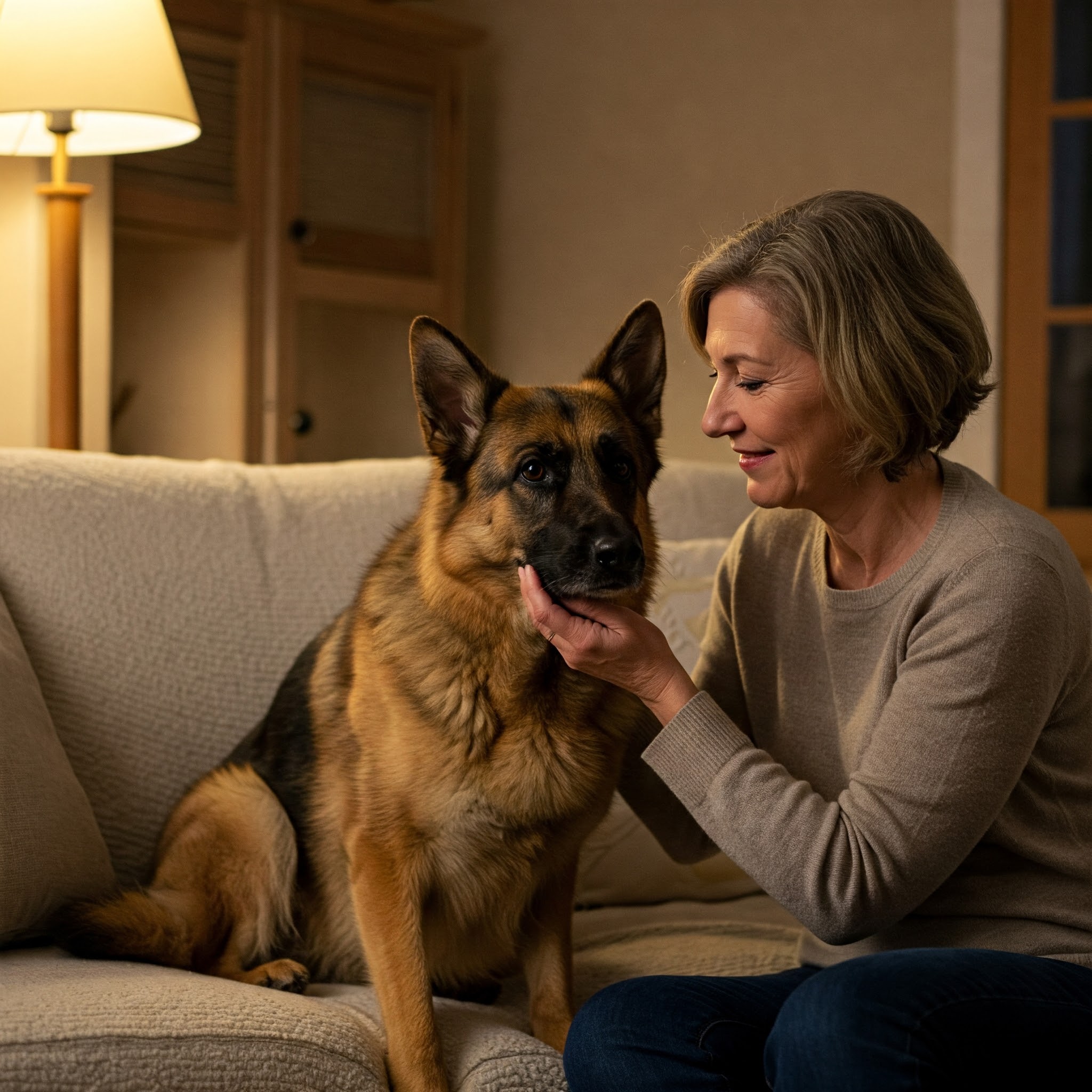
Caring for aging dogs is a beautiful way to return the unconditional love they’ve given us over the years. As dogs enter their senior years, their needs shift—requiring gentler care, better nutrition, and a bit more patience. With small adjustments in their daily routine, you can help your senior dog stay active, happy, and pain-free for longer.
🧠 1. Understand Your Senior Dog’s Changing Needs
Recognizing Signs of Aging in Dogs
As dogs age, they slow down and may sleep more. Look for signs like gray hair on the muzzle, joint stiffness, or less interest in playtime. Early awareness helps prevent more serious health issues.
Breed and Size Differences
Larger dogs often age faster than smaller breeds. For example, Great Danes may show senior signs by age 5, while Chihuahuas stay playful into their teens. Tailoring care by breed helps keep them comfortable.
🏠 2. Create a Safe and Supportive Home Environment
Make Your Home Mobility-Friendly
Place rugs with good traction on slippery floors. Add ramps near steps or beds. Use orthopedic dog beds to reduce joint pain and improve sleep.
Provide a Quiet, Cozy Resting Spot
Senior dogs need a calm, warm place to relax. Choose a quiet corner away from loud sounds and foot traffic, and use soft blankets for added comfort.
🦴 3. Feed a Nutrient-Rich Senior Dog Diet
Switch to Age-Appropriate Dog Food
Senior dogs benefit from food that’s easy to digest and packed with nutrients like omega-3s and glucosamine. Gradually transition to avoid upset stomachs.
Keep Them Hydrated and Interested in Food
Older dogs may drink less water or lose interest in meals. Serve lukewarm food, try hand-feeding, and always provide clean water.
🩺 4. Schedule Regular Vet Checkups
Bi-Annual Health Screenings
Visit your vet every 6 months for check-ups. Blood tests, dental exams, and x-rays help detect age-related conditions early.
Manage Chronic Conditions
Conditions like arthritis or kidney disease are common. Follow your vet’s treatment plan with medication, dietary changes, and possibly physical therapy.
🐕 5. Keep Them Moving with Gentle Exercise
Adapt Walks and Playtime
Short, slow walks keep senior dogs in shape without overexertion. Light games like fetch or tug-of-war keep them mentally and physically engaged.
Mental Stimulation Is Key
Use puzzle feeders, sniffing games, or new tricks to challenge their mind. Mental exercise is just as important as physical movement.
✂️ 6. Maintain Grooming and Hygiene Routines
Brush and Bathe with Care
Brush regularly to reduce matting and keep their coat clean. Use mild, senior-friendly shampoos and watch for skin issues or infections.
Prioritize Dental Health
Dental problems can affect your dog’s appetite and comfort. Brush their teeth, offer dental chews, and schedule professional cleanings.
💛 7. Support Their Emotional Well-Being
Create a Calm and Predictable Routine
Senior dogs thrive on stability. Keep feeding, walking, and bedtime routines consistent to reduce stress and anxiety.
Offer Gentle Affection and Companionship
Spend quiet time cuddling or talking softly. Your presence alone can comfort them deeply in their later years.
🎁 8. Celebrate Your Bond Every Day
Your senior dog may be slower, but they still treasure every moment with you. Daily love, a soft voice, and patient care mean the world to them. Celebrate their life by making each day gentle, warm, and full of love.
🐶 Final Thoughts on Caring for Aging Dogs
Taking care of an aging dog is a journey filled with compassion. By understanding their changing needs and providing extra support, you ensure your loyal companion ages gracefully. With routine vet care, a loving environment, and gentle daily habits, your senior dog can enjoy their golden years in comfort and happiness.
Also Read:
- Planning a Hike🥾? Don’t Forget Your Dog’s Backpack!
- Treat Time Upgrade: Bake These Yummy & Healthy Dog Treats Today!
- How to Keep Your Dog Fit Indoors—Even in a Tiny Apartment!
- Make Your Dog an Instagram Star with These Photo Tips 𓃦 📸
- 7 Heartwarming Ways Dogs Say “I Love You” ❤️
AI Tools You May Love (100% Free. No Login Required)

Check symptoms and understand your dog’s health better


